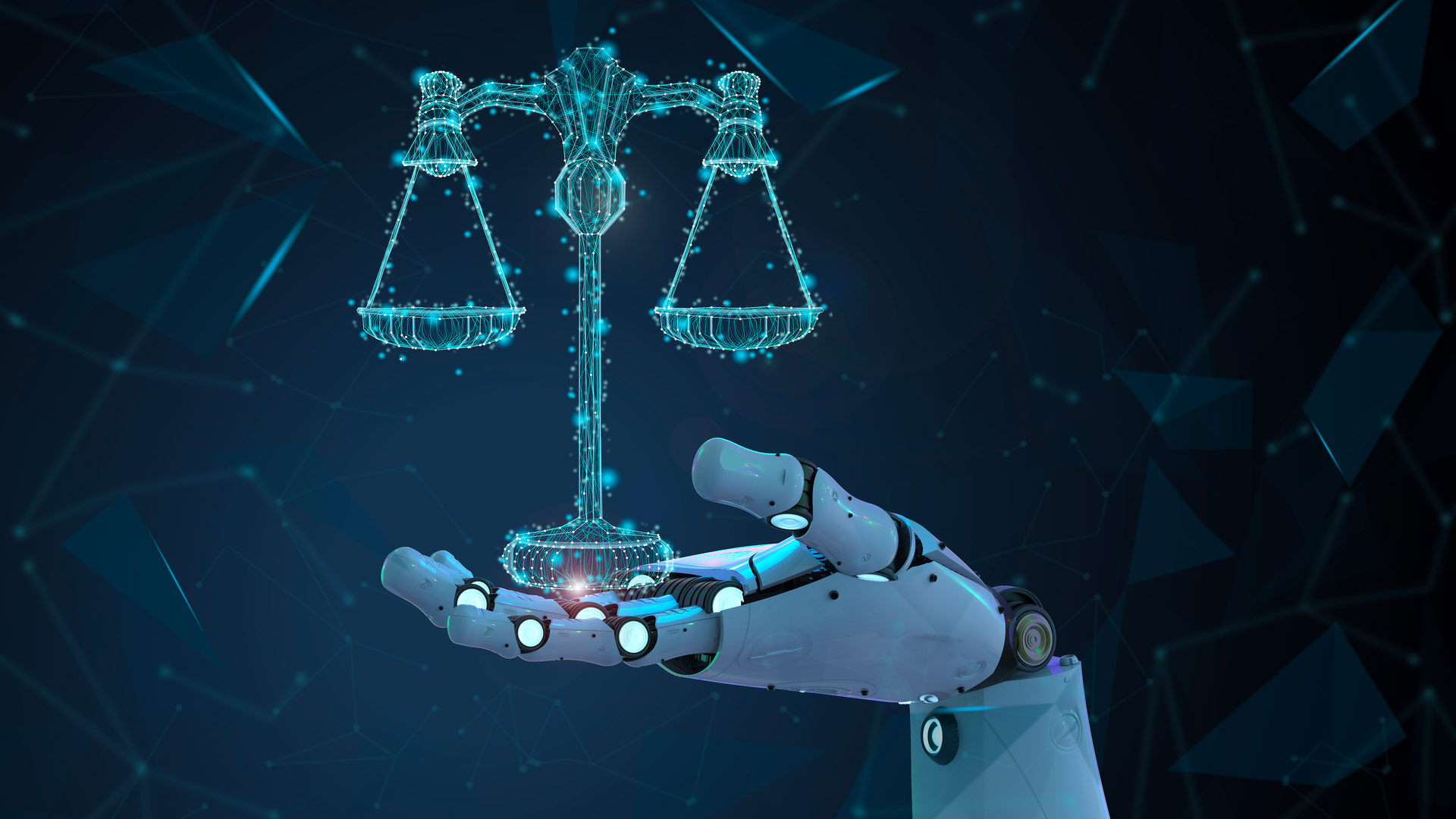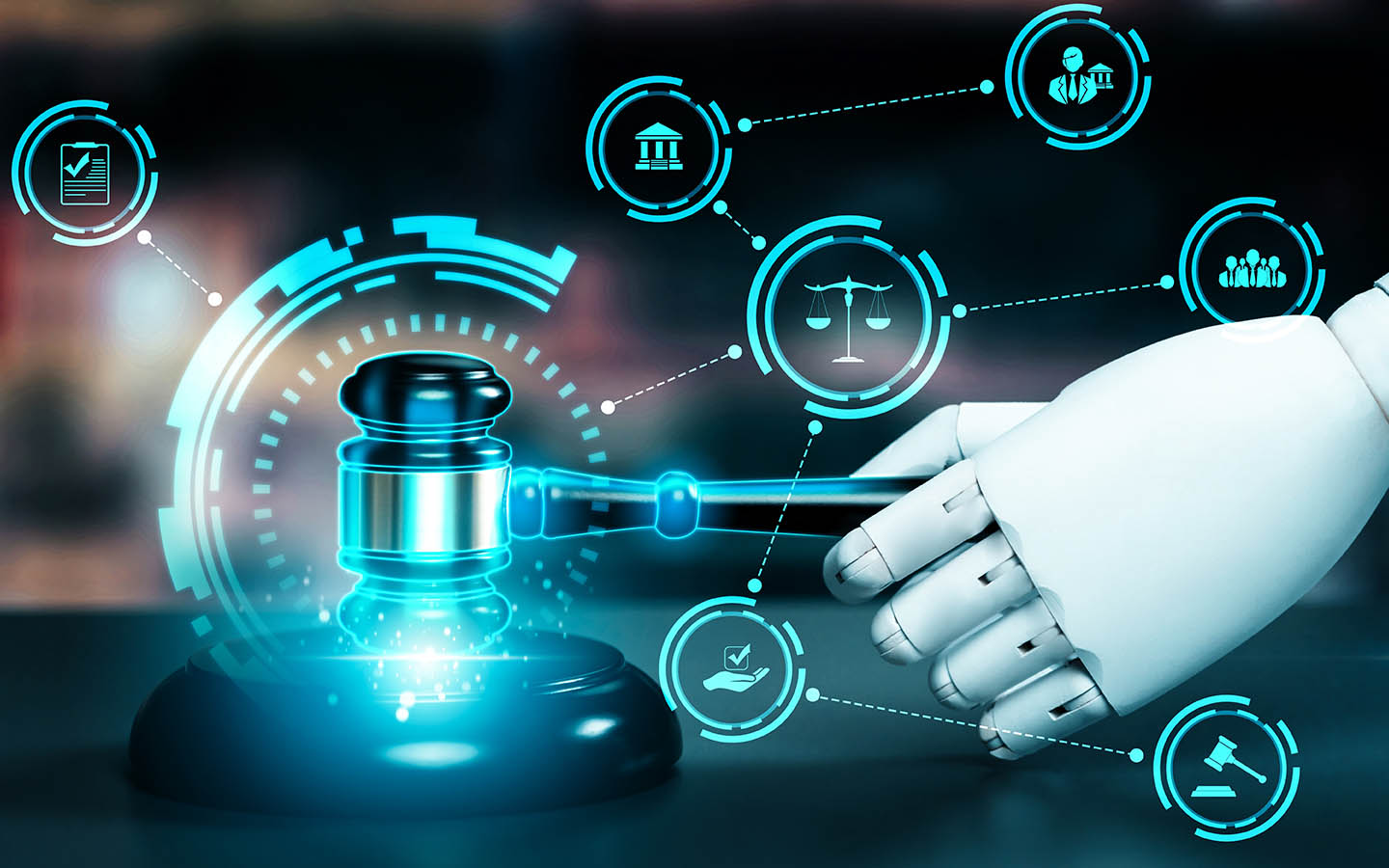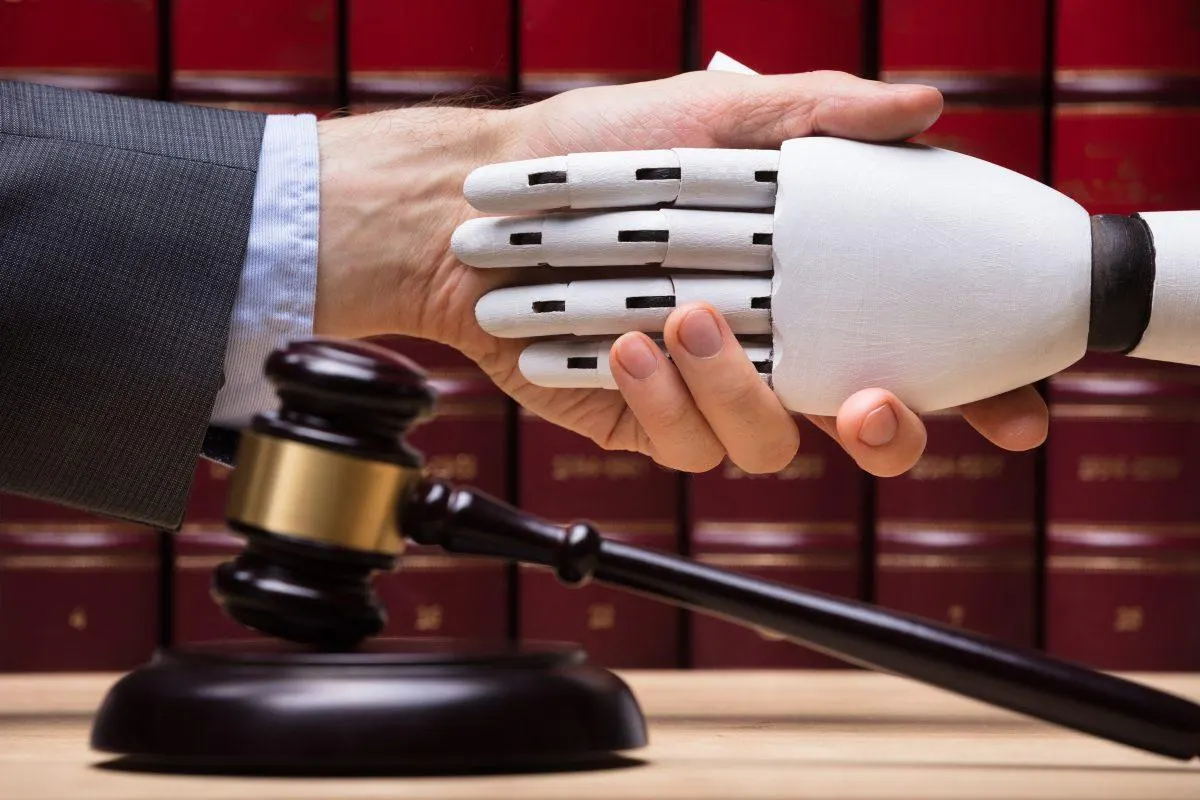The advent of intelligent systems is reshaping various sectors, and the judiciary arena is no exception. With the rise of sophisticated algorithms and machine learning applications, traditional practices are increasingly being re-evaluated. This evolution invites a wave of innovative solutions and challenges, fundamentally altering how legal professionals operate and serve their clients.
As technology continues to advance, it integrates into processes that were once considered exclusively human domains. From contract analysis to predictive analytics, these tools provide new methodologies that enhance efficiency and accuracy in decision-making. The integration of Artificial Intelligence introduces fresh perspectives on ethical dilemmas, accountability, and the very framework of justice itself.
Law practitioners and scholars alike find themselves navigating uncharted waters, where antiquated notions must adapt to modern realities. The emergence of artificial intelligence ignites rich discussions and raises questions about the future roles of attorneys, judges, and other stakeholders in this futuristic setting. Society stands on the brink of a new era, where digital intelligence and legal expertise converge to create an unprecedented environment.
Artificial Intelligence in Legal Research
The integration of advanced computational techniques into scholarly investigations is revolutionizing how professionals access, analyze, and interpret information within this field. By leveraging artificial intelligence, researchers are able to streamline their workflow and enhance accuracy in uncovering essential data.
One of the primary advantages of these innovations includes:
- Increased Efficiency: Automated tools significantly reduce the time spent on extensive documentation reviews.
- Enhanced Accuracy: AI algorithms minimize human errors by providing precise results and insights.
- Comprehensive Search Capabilities: Machine learning models can analyze vast databases, ensuring that no relevant information is overlooked.
Furthermore, the utilization of AI technology leads to:
- Improved Predictive Analysis: Sophisticated software can assess past cases and project possible outcomes, aiding in strategic decision-making.
- Natural Language Processing: This feature enables systems to understand and interpret human language, making it easier for practitioners to engage with the software.
- Research Recommendations: AI can suggest pertinent cases or statutes based on specific queries, streamlining the investigation process.
As these technologies continue to evolve, the potential for comprehensive and efficient research methodologies will only expand, facilitating a new era of exploration and understanding in this sector.
Automation of Routine Legal Tasks
The advent of intelligent technology has revolutionized the way everyday activities are performed within the legal profession. By delegating repetitive duties to automated systems, practitioners can enhance productivity and focus on more complex matters that demand human insight.
Various standard procedures can now be streamlined through automation, providing a myriad of benefits:
- Increased efficiency in document preparation and review.
- Reduction of human error in data entry and analysis.
- Faster turnaround times for case documentation.
- Cost-effective solutions that lower client expenses.
This technology enables legal experts to allocate their time and resources more effectively, concentrating on strategic decision-making and client relationships. Moreover, the elimination of mundane tasks empowers firms to rethink their operational models.
Examples of routine tasks that can be automated include:
- Drafting contracts and agreements using templates.
- Conducting preliminary legal research with advanced search algorithms.
- Managing case files and deadlines through digital platforms.
- Generating invoices and handling billing processes automatically.
The shift toward automation is not merely about replacing human effort; it fosters a collaborative environment where technology assists lawyers in delivering top-notch services while ensuring accuracy and compliance across various jurisdictions.
In summary, the integration of automated solutions into daily operations is reshaping how legal professionals engage with their tasks, enabling a more efficient and innovative practice model.
Impact on Legal Decision-Making
The integration of artificial intelligence into judicial practices is reshaping how judgments are reached and how cases are evaluated. By automating routine tasks and offering analytical tools, intelligent systems are influencing both the efficiency and accuracy of verdicts, thereby altering traditional methodologies.
Enhancements in Efficiency
- Automated document review allows for quicker assessment of case files.
- Predictive analytics can forecast case outcomes based on historical data.
- Chatbots provide immediate legal information and support to clients.
Challenges and Considerations
- Risk of bias in AI algorithms impacting fairness.
- Dependence on technology may reduce critical thinking among legal professionals.
- Concerns regarding the confidentiality of sensitive information.
Enhancing Client Interaction via AI
Artificial intelligence is revolutionizing the way professionals engage with their clients, offering innovative solutions and streamlined communication channels. By leveraging advanced technologies, businesses can foster stronger relationships with their clients while optimizing the overall user experience.
Personalized Communication
One of the most significant advantages of incorporating AI into client interactions is the ability to deliver personalized communication. Algorithms can analyze client behavior and preferences, allowing businesses to tailor their messaging and services to meet individual needs. This level of customization not only improves satisfaction but also builds trust and loyalty among clients.
24/7 Accessibility
The implementation of AI-powered chatbots and virtual assistants ensures that clients have access to support around the clock. This enhanced availability empowers clients to seek information or resolve issues at their convenience, leading to quicker response times and increased engagement. Ultimately, it creates a more responsive environment that meets the demands of today’s fast-paced world.
Bridging Access to Justice Gaps
Artificial intelligence has the potential to create pathways for individuals who have historically faced difficulties in obtaining fair treatment and redress. By streamlining processes and offering innovative solutions, AI tools can contribute to a more inclusive system where barriers are minimized, enabling broader participation for all members of society.
Recent developments illustrate how technology can address these challenges effectively. For instance, various platforms and applications now exist to provide resources, guidance, and support for those in need, regardless of their background. This shift towards digital assistance is crucial in ensuring that everyone can access necessary information and representation.
| AI Applications | Benefits | Target Audience |
|---|---|---|
| Chatbots | 24/7 support and information | Individuals seeking legal advice |
| Document automation | Reduced costs and time | Low-income clients |
| Predictive analytics | Informed decision-making | Legal practitioners |
| Online dispute resolution | Convenient and accessible resolution | Disputing parties |
The emergence of these digital innovations can close existing gaps, encouraging a more equitable environment for individuals to seek justice. By leveraging AI technology, stakeholders can foster a greater sense of fairness in the processes and outcomes associated with conflict resolution.
Ethical Considerations in AI Deployment
The integration of artificial intelligence within various sectors brings forth a myriad of ethical dilemmas that require careful consideration. As intelligent systems become increasingly prevalent, the responsibilities associated with their deployment must be scrutinized to ensure that they align with societal values and principles of fairness. This involves examining how decisions made by AI can impact individuals and communities, as well as recognizing the potential for unintended consequences.
One crucial area of concern is the potential for bias within AI systems. These technologies often rely on historical data to inform their algorithms, which can inadvertently perpetuate existing prejudices. It is essential to implement measures that can mitigate such risks, fostering fairness and impartiality in outcomes.
| Ethical Principle | Description |
|---|---|
| Transparency | Ensuring clear communication regarding how AI systems operate and make decisions. |
| Accountability | Establishing responsibility for the actions and consequences resulting from AI applications. |
| Privacy | Safeguarding personal information and respecting individuals’ rights in data handling. |
| Fairness | Striving for equitable treatment and avoiding discrimination in AI outputs. |
Another significant factor is the balance between innovation and ethical standards. While the capabilities of AI can lead to remarkable advancements, they should not come at the expense of fundamental human rights or dignity. Organizations must prioritize ethical considerations alongside technological development to create a harmonious interplay between progress and moral responsibility.
Ultimately, fostering a dialogue around these ethical facets is paramount. Stakeholders, including developers, policymakers, and users, must collaboratively engage in discussions that promote responsible practices in deploying AI technologies, ensuring that they contribute positively to society as a whole.
Q&A: Ai and law major impacts
How is AI transforming the way legal research is conducted?
AI significantly enhances legal research by automating the process of sifting through vast databases of legal documents, case law, and statutes. Traditional legal research often involves manually reviewing and analyzing numerous texts, which can be time-consuming and prone to human error. AI-powered tools, such as natural language processing algorithms, can quickly parse through large volumes of information, identifying relevant precedents and legal provisions. This not only increases efficiency but also improves the accuracy of legal research, allowing lawyers to make better-informed decisions based on comprehensive insights. Furthermore, AI tools can offer suggestions and highlight emerging legal trends, which is particularly valuable in dynamic areas of law.
What are the ethical implications of using AI in the legal field?
The use of AI in the legal field raises several ethical concerns that need to be carefully considered. One major issue is the potential for bias in AI algorithms, which can inadvertently reinforce existing disparities within the legal system. If the data used to train these algorithms contains biases, the resulting recommendations and outcomes could be skewed, leading to unfair treatment of certain individuals or groups. Moreover, there are concerns about transparency and accountability; for instance, the “black box” nature of some AI systems makes it challenging to understand how decisions are made. Legal professionals must also navigate issues related to client confidentiality and data security, ensuring that sensitive information is adequately protected. As AI continues to evolve, establishing clear ethical guidelines and regulatory frameworks will be crucial to address these challenges effectively.
What are some examples of AI applications in legal practice?
AI has found numerous applications within legal practice, transforming everyday operations. One notable example is contract analysis tools, which use AI to examine contracts for specific clauses, risks, and compliance with regulations, thereby streamlining the review process. Additionally, AI-driven predictive analytics can help lawyers assess the potential outcomes of litigation by analyzing past case data and trends, allowing for more strategic decision-making. Chatbots are also increasingly being used for client interaction, providing instant answers to common legal queries and assisting with document preparation. Furthermore, AI solutions for e-discovery facilitate the identification and organization of relevant electronic documents during litigation, significantly reducing the time and resources required for this labor-intensive process. These applications not only enhance efficiency but also allow legal professionals to focus on more complex and nuanced tasks.
How is AI affecting the roles and job prospects of legal professionals?
AI is reshaping the roles of legal professionals by automating repetitive tasks, which may lead to changes in job responsibilities. While certain entry-level positions that focus on document review or basic legal research may diminish, the demand for professionals who can interpret AI-generated insights, manage AI tools, and provide strategic legal advice is likely to grow. Law firms are increasingly looking for lawyers who are tech-savvy and can integrate AI into their practice, thus creating new career opportunities. Additionally, AI can improve job satisfaction by alleviating mundane tasks, allowing lawyers to concentrate on more strategic aspects of their work. However, there is a need for ongoing education and adaptation within the legal community to ensure that practitioners remain competitive in an evolving job landscape where soft skills, creativity, and emotional intelligence remain invaluable.
What challenges does the legal industry face when implementing AI technologies?
Despite the promising benefits of AI technologies in the legal industry, several challenges hinder their widespread implementation. One significant barrier is the high cost of adopting AI solutions, which can be particularly daunting for small firms and solo practitioners. Moreover, there is often resistance to change among legal professionals who may be accustomed to traditional methods, leading to a reluctance to embrace new technology. Concerns around data privacy and security also pose challenges, as firms must ensure that any AI tools they utilize comply with legal standards and protect client confidentiality. Additionally, integrating AI with existing systems can be complex and may require substantial investment in training staff. Finally, there is an ongoing need for clear regulatory frameworks to address the ethical implications of AI in law, ensuring that such technologies are used responsibly and effectively.
How is generative AI transforming the legal profession?
Generative AI is transforming the legal profession by automating tasks such as legal research, drafting legal briefs, and answering basic legal questions. Many legal teams are using AI-powered legal research platforms to streamline their work and improve efficiency.
How can law firms and corporate legal departments use generative AI?
Law firms and corporate legal departments can use generative AI to handle document review, contract analysis, and even provide access to legal services. AI can help lawyers by reducing the time spent on repetitive tasks, allowing them to focus on more complex legal issues.
What impact does generative AI have on legal education and law schools?
Generative AI has the potential to significantly impact legal education by becoming a means for legal education to evolve. Law schools may use generative AI tools to help students with legal research, understand relevant case law, and simulate legal problem-solving, preparing them for the future of legal practice.
What challenges are posed by the use of generative AI in legal services?
The widespread adoption of AI in legal services poses challenges such as ensuring that AI-generated legal work meets ethical standards, addressing potential bias in AI and machine learning models, and navigating the legal and policy questions surrounding the use of AI in the legal industry.
How might the legal profession in 2024 be affected by the deployment of AI?
The legal profession in 2024 may see an increased integration of AI tools across law firms, legal departments, and the legal industry as a whole. AI can enable more efficient processes in the practice of law, but it will also require legal professionals to adapt to new technologies and address the challenges posed by AI, such as maintaining the quality of legal services.




